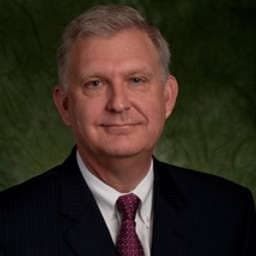William Wiesmann (Synedgen): 10 Key Things You Must Know

Overview
William Wiesmann is a prominent figure in the biopharmaceutical industry, known for his pioneering contributions in medical research and biotechnology. He is the co-founder and CEO of Synedgen, a biotechnology company that focuses on the development of innovative medical treatments, especially in the field of mucosal barrier repair. Wiesmann's work spans several decades, with significant advancements in military medicine, including the development of life-saving battlefield medical technologies. His contributions have had lasting impacts on both military and civilian healthcare.
1. Early Life and Education
William Wiesmann was born on [exact birth date unavailable] and pursued his early education in the United States. He later attended the University of Cincinnati, where he graduated cum laude with a bachelor's degree in chemistry. Pursuing his passion for medicine, Wiesmann earned his medical degree from Washington University School of Medicine in St. Louis, graduating in 1972. His education laid a strong foundation for his future endeavors in medical research and innovation.
2. Military Service and Innovations
Wiesmann's career in medicine took a pivotal turn when he joined the U.S. Army, eventually becoming the Director for Combat Casualty Care at the U.S. Army Medical Research and Materiel Command. During his tenure, he led projects that developed groundbreaking technologies for battlefield survival, such as the HemCon bandage, which effectively stops severe bleeding and has saved countless lives. His military service, which extended until 1997, was marked by numerous innovations that continue to benefit military and civilian trauma care.
3. Founding of Synedgen
In 2009, Wiesmann co-founded Synedgen alongside Shenda Baker. The company focuses on developing polysaccharide-based therapeutics that enhance and mimic the innate immune system. Synedgen's work targets complex interactions at the cell surface and mucosal interfaces to suppress inflammation, reduce infection, and improve healing. This venture was driven by Wiesmann's commitment to addressing unmet medical needs through innovative biotechnological solutions.
4. Key Contributions: MIIST Platform
Under Wiesmann's leadership, Synedgen has developed the Multivalent Innate Immune Signaling Target (MIIST) platform. This technology is central to Synedgen's product line, including MIIST305 for gastrointestinal acute radiation syndrome and ulcerative colitis. This platform is designed to protect the body's natural mucosal barriers from various forms of damage, showcasing Wiesmann's foresight in comprehensive medical therapies.
5. Patents and Intellectual Property
William Wiesmann holds over 50 patents, reflecting his prolific contributions to medical science. His patents cover a range of technologies, including advanced tissue engineering, biosensors, and infection control. His work has not just been limited to direct medical applications but has extended to enhancing the scientific and technological underpinnings of medical treatments.
6. Academic and Professional Affiliations
Beyond his corporate role, Wiesmann has been actively involved in academia and professional societies. He is a member of various advisory boards, including the University of Cincinnati's Department of Biomedical Engineering and the National Council at Washington University School of Medicine. His involvement exemplifies his commitment to fostering the next generation of scientific leaders.
7. Recognition and Awards
Wiesmann's career accomplishments have been recognized with numerous awards and honors, including the U.S. Army's Top 10 Greatest Inventions award for the HemCon bandage. His work in battlefield medicine earned him a reputation as a pioneering innovator, and he received an honorary Doctor of Science from the University of Cincinnati in recognition of his contributions to both military and civilian medicine.
8. Continued Impact on Healthcare
Although retired from military service, Wiesmann continues to influence the healthcare sector through Synedgen. The company’s focus on mucosal and dermal barrier repair has opened new pathways for treating diseases associated with significant morbidity and mortality, including radiation injuries and chronic inflammatory conditions.
9. Synedgen's Partnership with Government Agencies
Under Wiesmann's leadership, Synedgen has secured significant funding and partnerships with U.S. government agencies such as the Biomedical Advanced Research and Development Authority (BARDA). These collaborations support the development of medical countermeasures, furthering Synedgen’s mission to enhance public health resilience in the face of emerging health threats.
10. Future Prospects and Vision
Looking forward, William Wiesmann envisions a continued expansion of Synedgen's therapeutic pipeline to include broader applications for their technology. His goal remains to address complex medical challenges through innovative solutions that leverage the body's innate healing capabilities. Wiesmann remains a visionary in the field, influencing both the current and future state of biomedical advancements.
Conclusion
William Wiesmann is a prominent leader in biotechnology, whose work has had a profound impact on medicine, particularly in the development of transformative technologies that save lives. His legacy is characterized by an unwavering commitment to scientific excellence and innovation, paving the way for future advancements in healthcare technology.